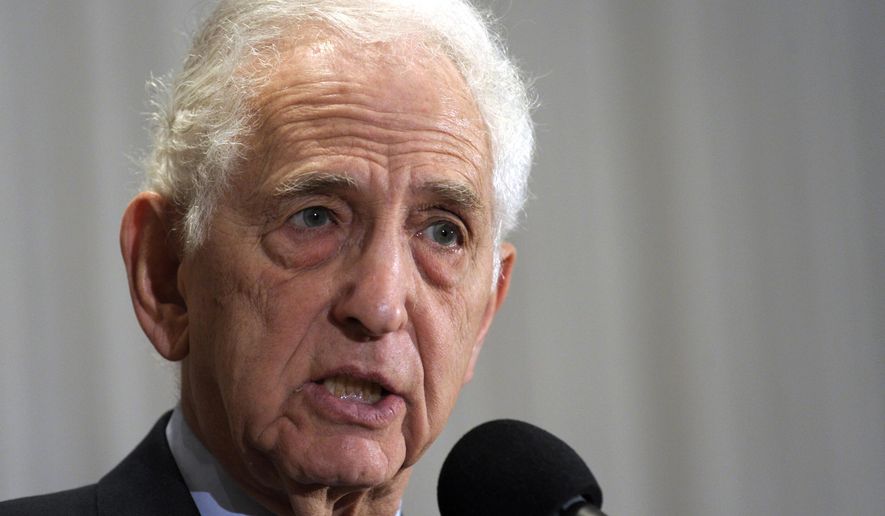Pentagon Papers leaker Daniel Ellsberg voiced concerns Friday about the safety of the U.S. government whistleblower that triggered the impeachment inquiry into President Trump.
Mr. Ellsberg, a former military analyst who came under fire from the White House decades earlier for similarly revealing covert government activities, worried about the whistleblower’s well-being during an interview on CNN.
“President Trump has put a bullseye on the back of that person by calling them a traitor, a spy, and almost calling on his vigilante constituency to take care of this troublesome person for him,” said Mr. Ellsberg noted. “So I think that every effort should be made to keep that person’s identity secret for their own safety, which I think is very much at stake.”
Mr. Ellsberg, 88, later recalled during the interview the consequences he faced during the administration of former President Richard Nixon for providing members of the media with unreported information about the Pentagon’s role in the Vietnam War.
“My wife used to worry that I was in physical danger under President Nixon,” said Mr. Ellsberg. “But I didn’t think it was a problem for U.S. citizens, like me. I was wrong. She was right. On May 3rd, 1972, a dozen CIA assets came up from Miami with orders to incapacitate me totally. And those orders came out of the White House. So they didn’t do it because they felt they were being set up as patsies. But that’s why I say that this whistleblower’s safety is a problem, is being in danger just as it was then.”
The House of Representatives initiated impeachment proceedings last month after the Trump administration tried to block Congress from seeing a whistleblower complaint filed by a member of the U.S. intelligence community. The White House later released a rough transcript of a July 25 phone call that sparked the complaint, and it showed that Mr. Trump asked his Ukrainian counterpart during the conversation to investigate former Vice President Joseph R. Biden, a front-runner among Democrats running for president in 2020.
Mr. Trump and his defenders have regularly tried to attack the unnamed whistleblower’s credibility in the weeks since their complaint became public and have pushed for the person’s identity to be disclosed.
“Where’s the Whistleblower?” Mr. Trump wrote on Twitter early Saturday.
Mark S. Zaid, an attorney representing the whistleblower, tweeted later Saturday that there is “no legitimate, non-partisan reason” for his client to come forward and risk exposure, adding that revealing their identity would only undermine existing whistleblower protections and deter others from coming forward in the future.
Mr. Ellsberg was charged in 1973 under the U.S. Espionage Act for his role in releasing the Pentagon Papers. All charges were dropped after it emerged months later that he had been the target of an illegal, covert operation conducted by individuals close to Nixon.
• Andrew Blake can be reached at ablake@washingtontimes.com.




Please read our comment policy before commenting.